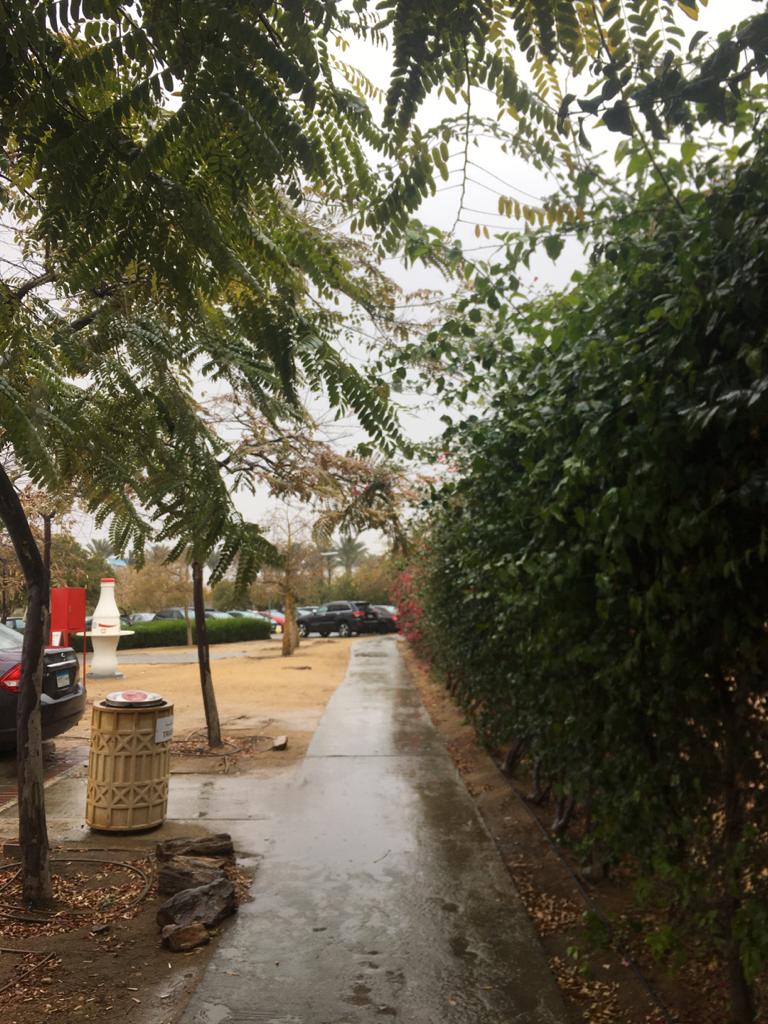Student Groups Launch Anti-Sexual Harassment Campaigns
By: Nouran El Ashry
Follow @nouran_elashry
A few days after the #MeToo campaign went viral on social media last October, student groups on campus mobilized to support the same cause.
The online anti-harassment campaign #Metoo encouraged women from all over the world to share their stories about sexual harassment.
The campaign aimed to give the world a sense of the magnitude of the problem and was popularized by Hollywood actress Alyssa Milano who first tweeted about the issue and got everyone talking.
The hashtag went viral on social media reaching Egypt where women kept sharing their experiences with sexual harassment.
AUC was no exception to the campaign as groups on campus started taking initiatives to encourage students to report any incidents they face on campus.
One of the groups that posted about the issue was the feminist club Heya, which participated in the online anti-harassment campaigns by calling on students to speak up and report incidents of sexual harassment or assault.
Heya Co-President Alia Afifi said that the issue is a priority for the club this year.
The club posted an online form where students can anonymously share incidents and testimonials of incidents on campus.
“I can’t provide any statistics now regarding responses to the form as we’re leaving the analysis part to later,” said Afifi.
“I can tell you that students are facing sexual harassment on campus and they have been reporting incidents and testimonials,” she added.
Afifi also said that she does not believe AUC is a safe place for students because it is challenging to provide security for such a large campus population.
“The process of reporting sexual harassment incidents on campus is vague and what we are trying to do in Heya is to maintain a structured and organized process that guides students in such situations,” Afifi told The Caravan.
She said that the club is currently compiling information to determine the most efficient procedures of reporting such incidents to the authorities.
Afifi said Heya would share the procedures with the AUC community.
The Student Union (SU) also posted on their official Facebook page support for the Twitter initiative and asked students to report any harassment directly and immediately to the Union.
Exposure Director of the SU Communication Committee Youssef Abdel Kader said that the initiative was designed to raise awareness that students of the Union’s support in these matters.
The SU will help students file sexual harassment cases, he added.
Abdel Kader said that students who face such assaults are usually either hesitant, shy or afraid to report the harassers.
That poses significant challenges.
“We used to receive reports from students when facing problems with food services and to me sexual harassment is a more important issue to report,” Abdel Kader told The Caravan.
“Students shouldn’t be afraid or shy and they need to learn to report such cases,” he said.
Abdel Kader added that sexual harassment is common on campus and it does not necessarily include a physical action.
“I see it myself when walking with my female friends and I notice guys giving them inappropriate looks,” said Abdel Kader.
Abdel Kader also said that harassers should be outed and punished as a means to prevent others from committing such violations.
The first step the SU will take is to raise awareness regarding the issue and work on creating an implementable plan to reduce, and even eliminate, sexual harassment on campus.
But Executive Director of Safety and Security General Mohamed Ebeid finds the campus to be a safe place for students.
He said that AUC students are mature and are aware of their rights and recourse.
He encourages students to report any harassment incidents to the Security Office where appropriate action will be taken.
“We take these incidents very seriously,” Ebeid told The Caravan.
“If a victim wants to sue the harasser, they have the right to officially report that to the police and we help them by providing the needed information and reports we have,” he added.
Ebeid also added that the AUC Security Office takes serious actions against harassers on campus whether they are students, faculty or staff members.
If a student is found guilty of harassment or assault, he or she is ultimately suspended.
Ebeid added that his office has received two complaints of sexual harassment involving ‘indecent glares’ since the beginning of the semester, and they were both filed against cleaning staff on campus.
But no action was taken, Ebeid said, because the victims in question could not identify their harassers.
Despite Ebeid’s assurance, some students remain unstatisfied with the current mechanism and have taken to informal methods, such as compiling and publishing lists of known harassers through anonymous submissions on Facebook.




